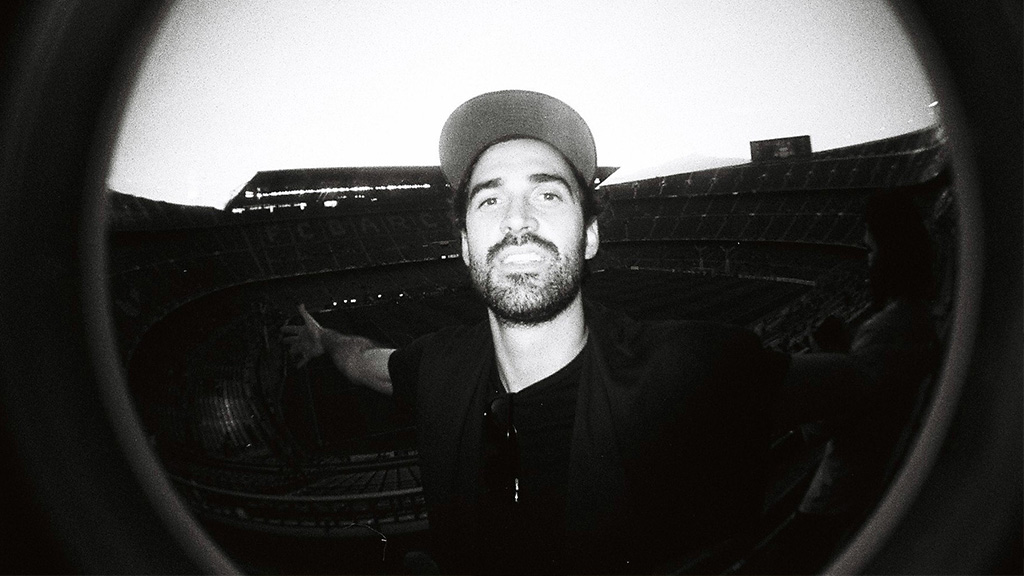It can be a tough slog being a musician AND trying to manage your band at the same time. If you find yourself in a bit of strife balancing the two, Greg Carey, manager of Cloud Control, The Rubens and co-chair of Association Of Artist Managers has 5 tips to help all you youngin’s manage your business. Take it away Greg!

Not sure how to navigate the waters of music management? The man behind Cloud Control and The Rubens Greg Carey has 5 tips for self-managed bands to help out!
1. It all starts with the song!
The foundation of this whole industry is based around songwriters. Without them, there is no music and no industry. If you have aspirations to follow a career in music, don’t spend your time worrying about anything else in the beginning apart from learning the craft of writing good songs, in whatever genre of music you love.
I’m going to rip out the old ‘plumber analogy’ here. To become a plumber you don’t just go out to Bunnings, buy all the right gear, get a sticker with your business name on it, stick it on your ute and you’re up and running as an A-Grade plumber. Instead you seek an apprenticeship and spend the next four years digging holes, doing the shit jobs and learning the ropes.
Likewise if you are serious about becoming a songwriter, you just don’t go down to Turramurra Music, pick up a Telecaster and Fender Deluxe amp and you’re off and running, booking gigs and making records. You have to learn the art. Get lessons. Study classic songs and find out why the have resonated with thousands or millions of people. What makes a good song? For some people this might come more naturally. Write 100 average songs to get one good one.
What does this have to with being self-managed? If the songs are great, naturally you’re at an advantage, as good songs with the right plan can find the right path. It’s just the start of a whole lot of other hard work and a good transition to the next tip below…
2. Have a plan
Whilst at the core you are an artist, from the outset try and remember that essentially you are running a creative business. This is key to rewiring the brain but don’t let is consume you or worry you. What’s the point of spending weeks, months even years writing, recording, gigging without a plan. Sure if you want it to be just a hobby go for it. But if you’re serious about wanting a career and cracking the code, you must have a solid plan.
Now, the music industry isn’t rocket science. We ain’t curing cancer nor are we doing quadruple bypasses to save lives. BUT the music industry from the outside can be this perplexing beast (hey, it still is!). How does one make a plan when you don’t even know how the whole thing really works.
So I’m going to help you write you plan in some easy to follow steps:
– Establish a framework and articulate your goals (what are you doing this for, what do you want to achieve, do you just want to have fun and see where it goes, do you want to play lots of live shows? )
– Write good songs
– Record good songs (this doesn’t have to be an expensive exercise btw)
– Create a brand (band logo/online presence)
– Build an online presence (website, social media)
– Create a logical and realistic timeline
– Activate timeline
– Assess your goals and evaluate where you are at
This doesn’t sound like rock n roll at all but this isn’t the rock n roll side of it. It’s business yo! It is sometimes hard to know if the chicken comes before the egg but some of it will be trial and error. Once again just use common sense and be reactive to your plan. If things aren’t initially working, change your plan to figure what is stalling progress. Be reactive if things start going well.
The thing about the 101 business stuff in music it’s very public facing. If your favourite band is someone like Violent Soho, go and visit their website. Yes they write fucking great songs but what else do they do to present themselves. Look at their brand (logo/press shots/merch). Don’t get too overwhelmed because they’ve been working hard for over 10+ years to get to this point. Use it as inspiration.
3. Build a team around you / Seek a mentor
If you are a solo artist and managing your own project, this could be overwhelming when you’re trying to balance the creative with the business hustle. Do you have friends with skills, like graphic design (gig posters, logos etc) or friends / colleagues that are good at writing (bios/ press releases)? Look close to your inner circle and see in the early stages if people are willingly to help you out.
If you are in a band, look internally first. Is someone in the band a good photographer (press shots)? Are they naturally savvy at social media and developing content (video, photos etc)? In the long term, you will want to try and get more people on your team to help do the day to day things and assist in achieving your long term goals. Booking agents, labels, publishers, publicists, distributors and digital marketing agencies are just a few personnel that can bring great expertise to your business.
Again, how do you get these people interested in working with you? If you have great songs, a good plan and you’re professional with your approach, people will find you and be requesting meetings. Be diligent. Be patient. If it doesn’t happen straight away, keep plugging away.
Another thing that I found extremely helpful at the beginning of my career and still helpful today is find a mentor in the similar field and learn from them. There are three people that really helped me navigate the world of artist management in the early days and I don’t think I could have made some key decisions without them.
How do you get a mentor you ask? Be proactive but also be mindful that managers are busy people but we tend to want to help the next generation coming through. Your mentor might be another artist who has been successful but has been in the industry long enough to give you some solid advice and direction.
The AAM runs a flagship mentor program which links emerging / mid tier managers with highly reputable and successful managers. It’s a good program to learn from the best.
4. Be organised
Probably the hardest thing as a self managed artists is to develop a strong work ethic and creating the balance of Creative vs Business.
When I was learning the ropes and trying to juggle business obligations and the array of daily tasks as a manager, I realised quickly that there are many hats to wear and I had no choice but to be extremely organised. Once again I refer back to the establishing a solid plan. Once the plan is developed it’s about establishing the timeline and putting them into reality.
There are many project management tools out there to assist with tracking project timelines. We use Asana which is a collaborative tool which has an app, it’s really intuitive and simple to use.
One of the most memorable examples that brought this one home was how Nick Cave suits up every morning, walks out his front door and back around the side of his house, to the back entrance to his house, which is his studio. He takes his job as a song writer and producer seriously and treats in like a ‘normal’ job.
5. Learn stuff
The industry is always changing and new opportunities are presenting themselves to help artists or develop new income streams. I’d suggest for any self managed artists to become a member of the AAM so you are engaged with the sector and the wider industry. The AAM runs workshops in most states and it’s a great way to meet managers, like minded people and learn from the best. Other management programs like The Seed and Control are excellent programs that you should seek. I did the Control program in the pilot year and found that really helpful in establishing my own business.
The management survey that we are encouraging ALL managers (established managers and self managed artists) is key to collating statistics that we can learn more about the sector so we can have the appropriate dialogue with government on all levels to support what we do. Let’s face it managers, whether or not you are looking after your own work or another artist is paramount to building short term or long term careers. So I encourage you all to fill in the survey.
Thanks for reading and good luck with your music and management!
Association of Artist Managers (AAM) invites all managers and self-managed artists to take part in the AAM Survey (closing this Friday 12 February). It’s the biggest research project ever conducted on Australian Music Managers. You can take the survey here.
Check out our article on how to promote your band with advice from some of Australia’s top publicists.



